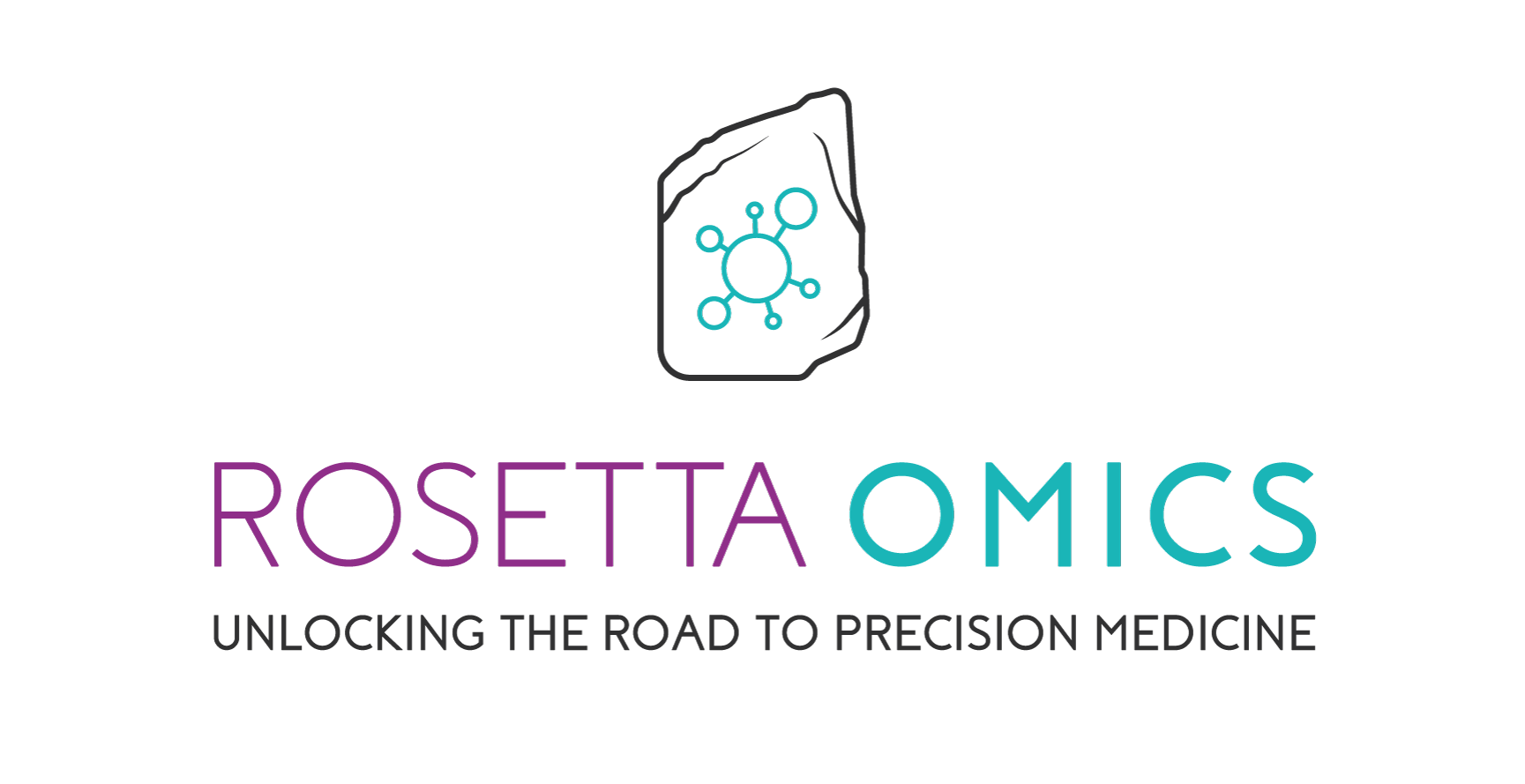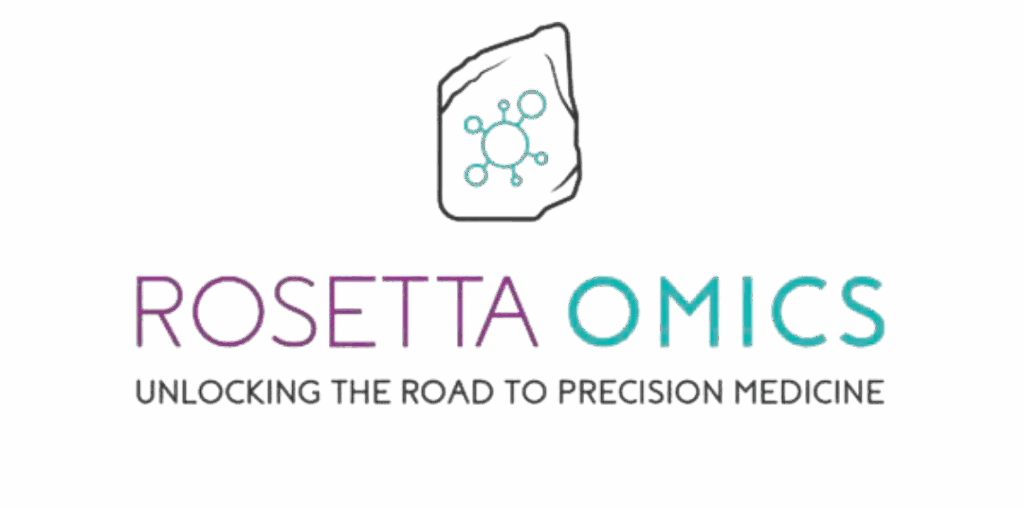
AI-Enabled MultiOmics Cancer Precision Medicine Platform
Our Vision:
To redefine cancer care by making precision medicine accessible to every patient. Through the seamless integration of spatial omics, advanced proteomics mass spectrometry, gene expression analysis and advanced AI algorithms, Rosetta Omics envisions a future where each biopsy unlocks clear guidance for diagnosis, treatment selection, and therapeutic discovery, transforming outcomes and accelerating the path to cures.
Our Mission:
To empower oncologists, clinicians, and pathologists to deliver precision cancer care. From a single tissue slide per patient, our platform enables accurate diagnosis, patient stratification, and prioritization of first-line treatment options, guiding personalized therapy decisions with speed and confidence.
THE PROBLEM
Each year, more than 20 million people worldwide are diagnosed with cancer. Standard first-line therapies are not always effective, underscoring the urgent need for personalized medicine that can rapidly match patients with the most promising treatment. By improving the ability to predict treatment response, Rosetta Omics aims to increase cure rates, save lives, and reduce the burden of costly and inefficient therapies.
OUR SOLUTION
Rosetta Omics platform integrates seamlessly into standard clinical biopsy workflows, enhancing diagnostics and supporting informed decision-making. Beyond clinical applications, our solutions enable the identification of clinically relevant biomarkers and facilitate the discovery of novel therapeutic targets, bridging precision medicine with drug development.
Rosetta Spatial And Multiomics Platform
Our Platform includes the following technologies:
Mass Spectrometry Imaging
Mass spectrometry imaging (MSI), through matrix-assisted laser desorption ionization (MALDI-MSI), is a fast, label-free spatial omics approach that enables molecular pre-screening directly in tissue. By mapping the spatial distribution of lipids, metabolites, and proteins, it provides an integrative molecular snapshot that supports multi-omics discovery and context-aware interpretation of biological systems.
Laser Capture Microdissection
Laser microdissection (LMD) is a spatial omics technique that enables the targeted selection of specific tissue regions or cell populations. By isolating defined microscopic areas with high precision, LMD preserves spatial information while providing material for downstream molecular identification across lipids, metabolites, proteins, or nucleic acids.
Liquid Chromatography Tandem Mass Spectrometry
Liquid chromatography–tandem mass spectrometry (LC-MS/MS) is a high-resolution analytical platform that enables deep peptide and protein identification with label-free quantification. By combining chromatographic separation with sensitive mass spectrometric detection, LC-MS/MS provides robust molecular profiling that supports comprehensive proteomic analysis.
QPCR For Gene Expression
Tumor gene expression analysis using quantitative polymerase chain reaction (qPCR) provides a sensitive and robust approach for profiling transcriptional activity in cancer tissues. By quantifying gene expression and normalizing results against a reference bank of healthy tissues and cells, this method enables the identification of tumor-specific molecular signatures, supporting biomarker discovery, validation, and translational research.
MOLECULAR PROFILING
Our solution enables the exploitation of clinical samples in an optimal and specific way by identifying and quantifying several thousands of proteins following the spatial molecular profiling of the tumor micro-environment using multiple analytes such as proteins, metabolites or lipids, from a small amount of biopsy-compatible material. Our multidimensional Multiomics data input from the tumor and non-tumor tissues allows us to define the associated molecular pathophysiology of the patient’s cancer.
AI-ENABLED PREDICTIVE PLATFORM
Rosetta Omics harnesses advanced multiomics technologies integrating genomics and proteomics with AI-driven algorithms to deliver deeper molecular insights for cancer precision medicine. By analyzing differential expression across the transcriptome and proteome, our platform more accurately predicts treatment response, empowering clinicians to deliver the right therapy to the right patient at the right time.
BIOMARKER DISCOVERY
With our label-free mass spectrometry approach, free from the limitations of antibody specificity, we can identify both known and novel biomarkers of clinical relevance. This enables the discovery of therapeutic targets, the development of new treatment strategies and combinations, and improved tumor classification and patient stratification for biopharmaceutical companies.
Current Patient Journey

Patient Journey With Rosetta Omics

RECENT UPDATES

Rosetta Omics has been selected to join Season 5 of the Pfizer Healthcare Hub France (PHHF)

An Interview in french with our CEO on europe 1
Discover how Deeptech is transforming medicine. In this episode, Wahid Awad (Rosetta Omics) shares his vision of life-saving innovations.

Biotechnology Venture Readiness Program 2025 by Saudi Biotechnology Accelerator
We are very happy to announce that Rosetta Omics has been selected to join the Biotechnology Venture Readiness Program 2025, run by the Saudi Biotechnology Accelerator.

All rights reserved© Rosetta Omics 2025